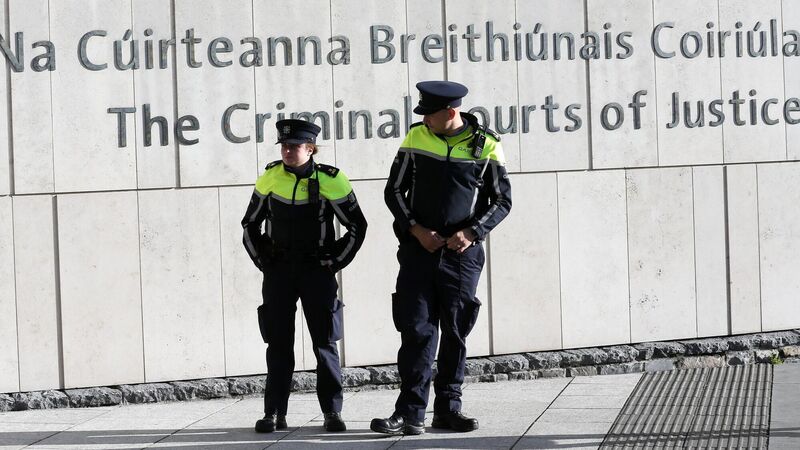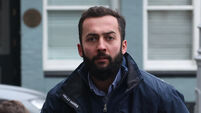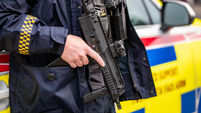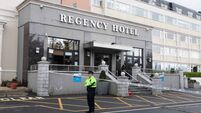Trial of gangland boss Gerry 'The Monk' Hutch begins amid high security

High security will be evident at the Criminal Courts of Justice again today, with armed, elite police units present, backed up by public order gardaí. Picture: Sasko Lazarov/RollingNews.ie
One of the biggest ever gangland trials in Ireland is set to start today, as the State opens its case against Gerry ‘The Monk’ Hutch for the murder that ignited the Kinahan-Hutch feud.
The case comes just 24 hours after Jonathan Dowdall — the State’s key witness in the prosecution of Mr Hutch and possibly two other accused — was given a four-year jail term for his role in the notorious gun attack at the Regency Hotel in 2016.














